When I took Spanish, I was startled to learn that a knock on the door was toc toc and dogs barked guau guau. How could sounds be different in another language? Weren’t onomatopoeia supposed to represent how we actually heard them? But once I accepted that everything sounds different in another language I was enchanted.
Upon meeting my husband, I started to learn simple Vietnamese words. One of the first things I learned to say was a children’s poem:
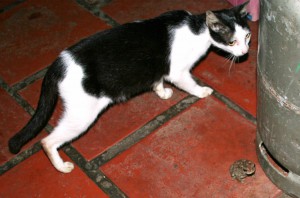
A cat (con mèo) meows meo meo, but when it’s lost or looking for food it might say ngao. Similar to English, there isn’t a word for the noise this toad makes.
Con mèo, con mèo
nói kêu
meo meo.
* * *
The cat, the cat
it says
meow meow.
The poem continues for each type of animal sound:
A cat (con mèo) meows meo meo, but when it’s lost or looking for food it might say ngao.
Frogs ribbit quệch quệch.
Bullfrogs croak ộp ộp.
Owls hoot cú cú. Unlike in America where owls are synonymous with wisdom, in Vietnamese and other cultures, the appearance of an owl is an omen of death.
Ducks quack cạp cạp.
Pigs root around ột ột.
Horses neigh hí. People don’t think of riding horses in Vietnam, but my husband’s Grandfather Lưu was a Chinese doctor who rode a white horse to visit his patients.
Dogs bark quấu quấu (qu is pronounced like a w).
Cows moo ngò. During the war, an airplane would appear in the sky that looked like it was shooting a red line down at night because of the tracers. When these kind of airplanes came out, people said the cows were mooing because that’s what it sounded like, ngò . . . .
Goats bleat be he.
Sheep ba and larger sheep have a deeper bà.
Bees buzz ù
Chickens cluck cục tác.
Chicks peep chíp chíp.
Roosters crow ò ó o o which, if you say it right, sounds more realistic than cock o’ doodle doo.
When I wrote the story of my husband growing up in the Mekong Delta, I used onomatopoeia not just for animals, but for noises like the rồ rồ rồ of a boat engine and the cóc cóc of beating a wooden drum.
To borrow not just the ears, but the eyes and thoughts of a boy growing up in islands of the Mekong Delta during the Vietnam War and Communist takeover, read Catching Shrimp with Bare Hands.
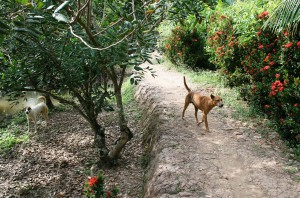
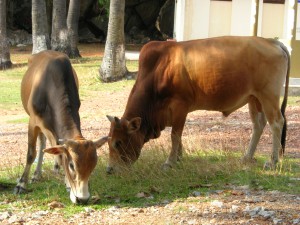
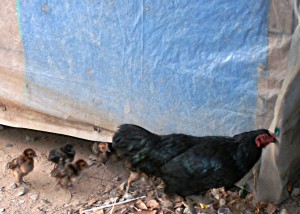
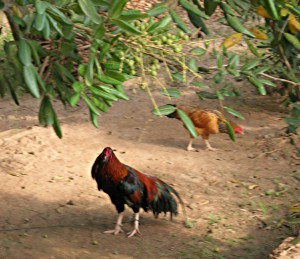
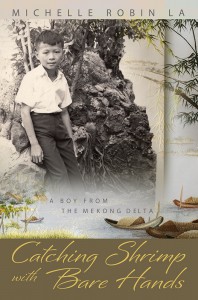



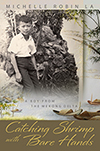
Europe, and in Ancient Russia
bfmky0
iexz16
I hear pigs would sound “ụt ịt” as well.
Thank you, very interesting. I agree with Jan Gernonimo, some sounds look much more accurate — like cạp cạp for ducks, I love it 🙂
Pingback: Quora
Those sounds are spot on! I remember becoming aware of this in college when a Japanese exchange student gave a speech on animal noises. In Japan, they DO know what the fox says! I don’t know how they spell it, but it sounds like “cone”.
I would have loved to have heard that talk. I don’t think I’ve ever heard any Japanese words for animal sounds. It’s interesting how different cultures hear things differently. Thanks for sharing and for telling us what the fox says 🙂
Those animal sounds seem more faithful to the actual sounds than their English equivalents, I think. But it’s hard to remember how these are spelled in Vietnamese. I need some moments to rearrange my brain to get it back to its functioning form, I suspect. Well, there’s a first time for everything.
ột ột. Translation: it’s been lovely and worth the bother.
Thanks! I’m glad.